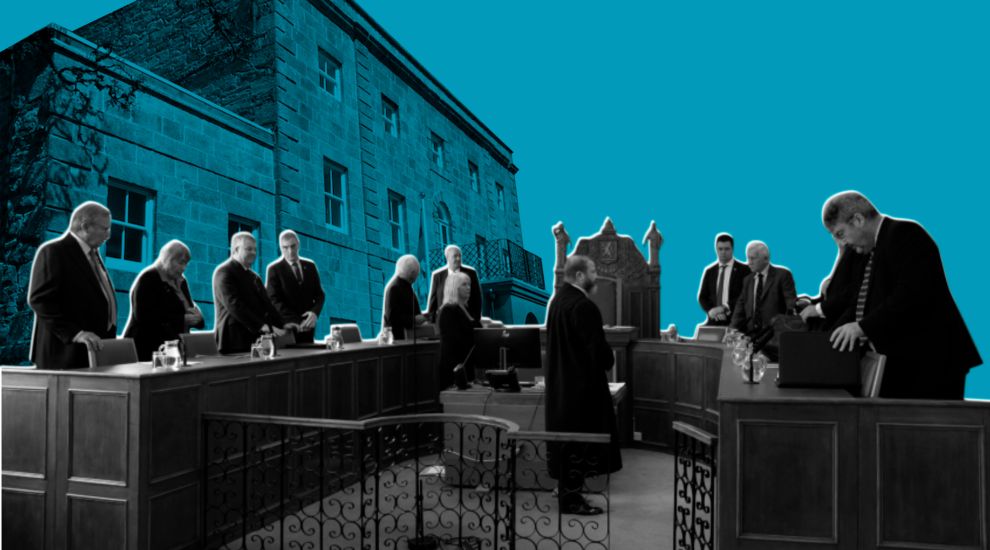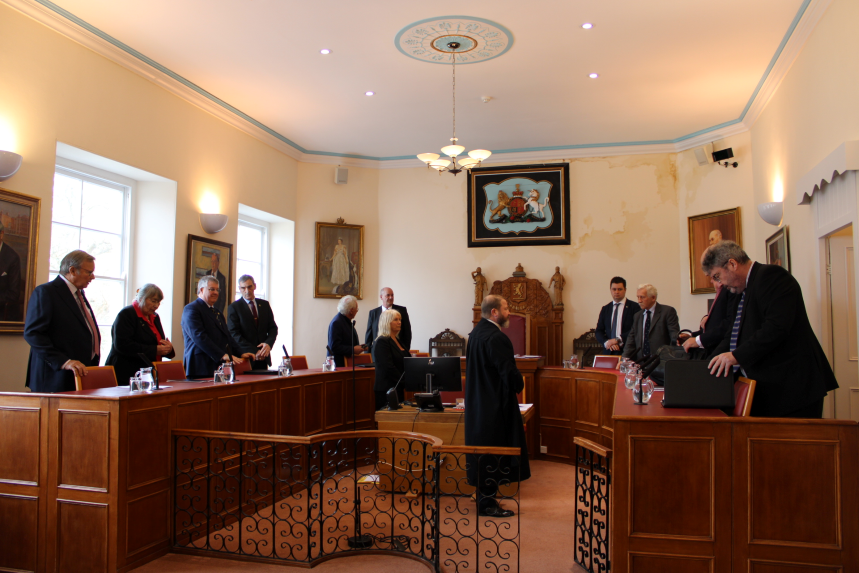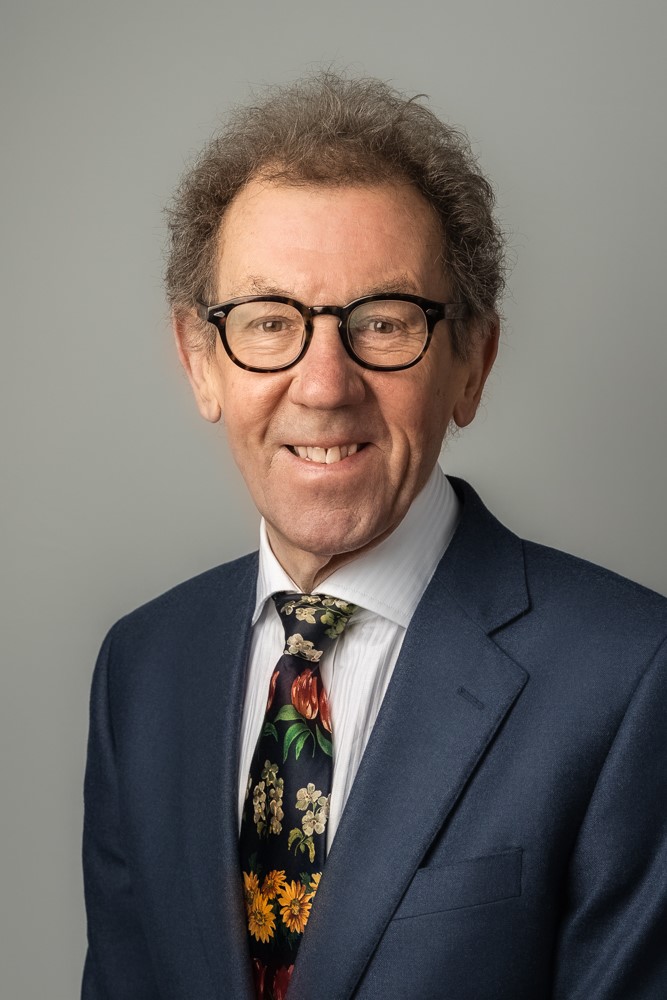


The criminally overlooked island of Alderney may not be the biggest or busiest of the Channel Islands, but it still comes with its fair share of political discourse, community concern and important issues, many of which are similar to those faced by its bigger neighbours, Guernsey and Jersey.
I recently spent three days in the island, to document a controversial topic that raised its head in a States meeting, and to get a more general feel of the island, its people, and what the main talking points are.
This is the start of a series of FOCUS pieces that’ll culminate in a full length podcast, documenting my time in a place that I’ve become increasingly fond of.
But first, a look at the governance of Alderney. While the island shares similarities with how the other islands are governed, it comes with its own quirks and before we dive into the important debates on health, connectivity, and housing, I thought it prudent to draft a little explainer.
Let me introduce you to; the States of Alderney.
There are ten States members in Alderney who each hold office for four years. The Assembly is led by the President of the States of Alderney who also holds the position for four years. Unlike Guernsey or Jersey, Alderney operates a form of rolling election where five sitting members are put up for re-election every two years.
On the official States of Alderney website it says this process ensures that: “... continuity at all levels is maintained and represents a stable, experienced parliamentary body.”
There are four ‘principal committees’ responsible for running the island and guiding policy and legislation.
The Policy and Finance Committee (P&F) is responsible for the financial management of the island and for leading general policy development. Its mandate is wide ranging, including responsibility for; telecommunications, the island census, and taxation.
The co-ordination of States work and the implementation of States policy then falls to the General Services Committee (GSC). It is responsible for the island’s water supply, the administration of Burhou, and various other ‘services’ essential to the island.
Planning applications, and the oversight of protected land falls within the remit of the Building and Development Control Committee and anything relating to immigration, population, and economic health falls within the remit of the Economic Development Committee.
There are then several government departments that support the work of the committees, and a Finance Group which supports P&F in managing financial risk and developing policy.

In a quirk that some argue offers a stronger community relationship to the overview of government, the President of the States of Alderney – unlike the Bailiffs in Guernsey and Jersey – is elected by the community.
It’s their responsibility to Chair the monthly States meeting and ensure correct governmental procedures are adhered to. The President also has a right to vote during debates, but this is only used when there is a tied vote.
They are elected for a period of four years and also hold a variety of trustee positions.
The current President of the States of Alderney is William Tate, who began the most recent term in 2020. He is a qualified solicitor and used to run his own legal practice.

The ten members who constitute the States of Alderney all preside over or sit on various committees. They are paid £11,725 per year and are members, not deputies, so do not have ‘deputy’ in front of their name.
Nigel Vooght was elected to office in 2022 and is the Chair of P&F. He is also the Commodore of the Alderney Sailing Club.
Lin Maurice is the Chair of the GSC and was also elected in 2022.
Kevin Gentle is the Chair of the Building and Development Control Committee and was elected to office in 2020. He is also one of the recently appointed board members of the Connaught Care Home.
The Economic Development Committee is chaired by Alex Snowdon, who is one of the two representatives for the island who sit in Guernsey States meetings.
He is one of the more vocal States members, and often puts questions to the other committees during debate and is consistently active on social media.
Bill Abel is the Deputy Chair of P&F and has been heavily involved with developing the future of power generation in Alderney. I spoke to him about plans for renewables and self-reliance, as the CEO of Alderney Electricity Limited – James Lancaster – was unavailable. More on that in later article.
Supporting the GSC as Deputy Chair is Bruce Woodhead who was elected in 2022. He attempted to get one of the two spots available as an Alderney representative to the States of Guernsey but lost out to Mr Snowdon and Steve Roberts.
Mr Roberts is considered the ‘father of the house’ as the longest serving member of the States of Alderney. He has held many positions, including the Vice-Presidency of the States.
Former teacher, Ian Carter, was elected in 2020 and is the Deputy Chair of the Building and Development Control Committee. He is the current VP and deputises when Mr Tate is unavailable.
Boyd Kelly is another long serving member and has held many positions in the States, including being Chair of the GSC at one point. He is also the Director of Alderney eGambling Limited
Derwent Smithurst is a former Aurigny pilot turned Aviation Consultant, who was also the Director of Alpha Estates in Alderney. He was elected in 2022.
Alderney has two voting seats in the States of Guernsey and the representatives from the States of Alderney are elected by the Alderney community every four years.
The current two representatives are Mr Snowdon and Mr Roberts who both receive an additional £20,629 for their role in Guernsey, where they also sit on several States of Guernsey committees.
Harking back to the days when fewer people could read, the States of Alderney still hold ‘People’s Meetings’ before every States debate.
While some politicians I met think these events should be consigned to history, others believe they remain an essential forum for public debate.
The members and the President sit once a month – except in February and August – to debate, discuss and vote on various pieces of legislation and policy.
The Peoples Meeting is held in advance of this, to inform the public of what is going to be discussed and give an opportunity for questions to be asked.
So, there you have it, the bare bones of Alderney’s government. Coming up I’ll have interviews and insight on the ongoing airport debate, the Pickles Inquiry, renewable energy, the future of healthcare and moves to attract a younger demographic.
More to come...
Comments
Comments on this story express the views of the commentator only, not Bailiwick Publishing. We are unable to guarantee the accuracy of any of those comments.